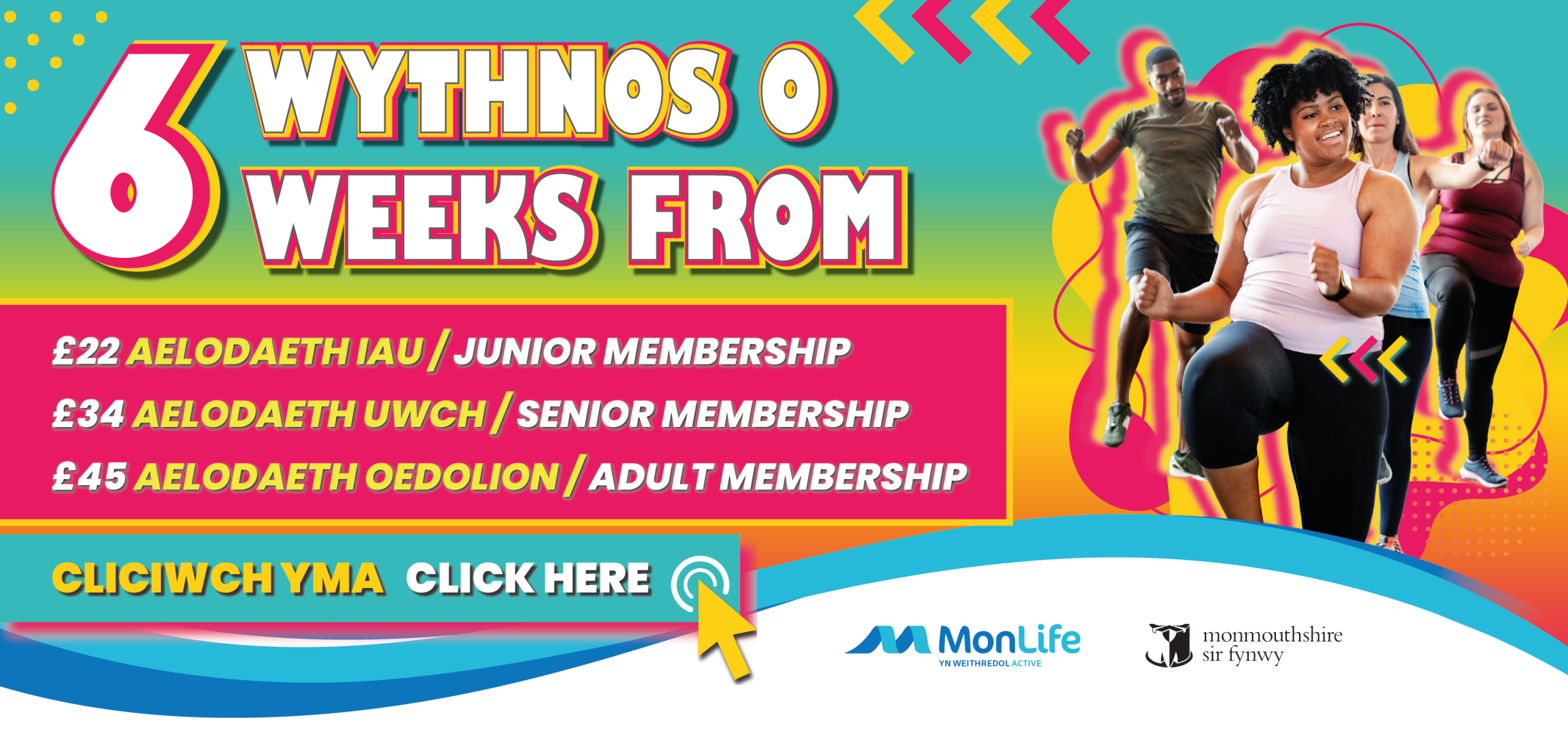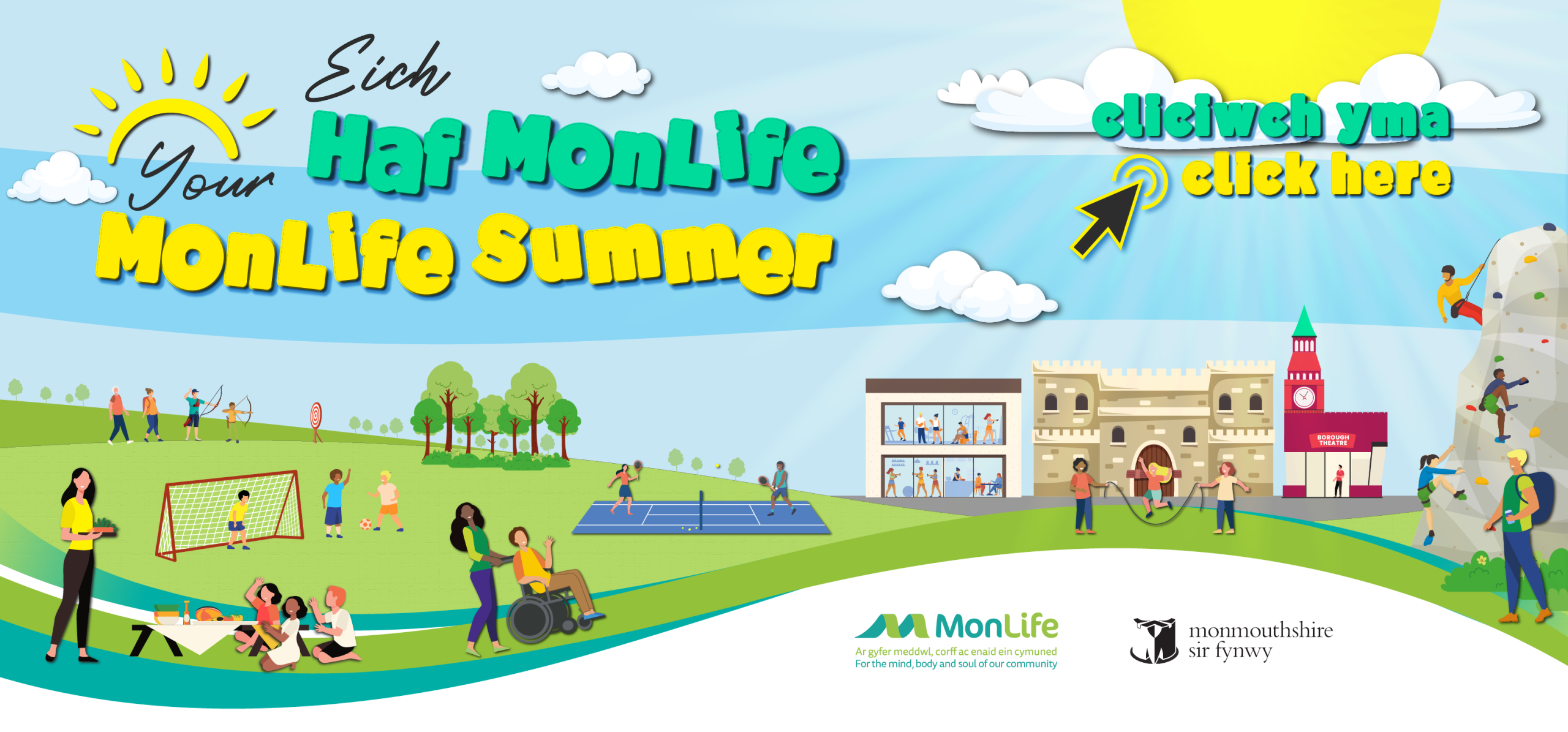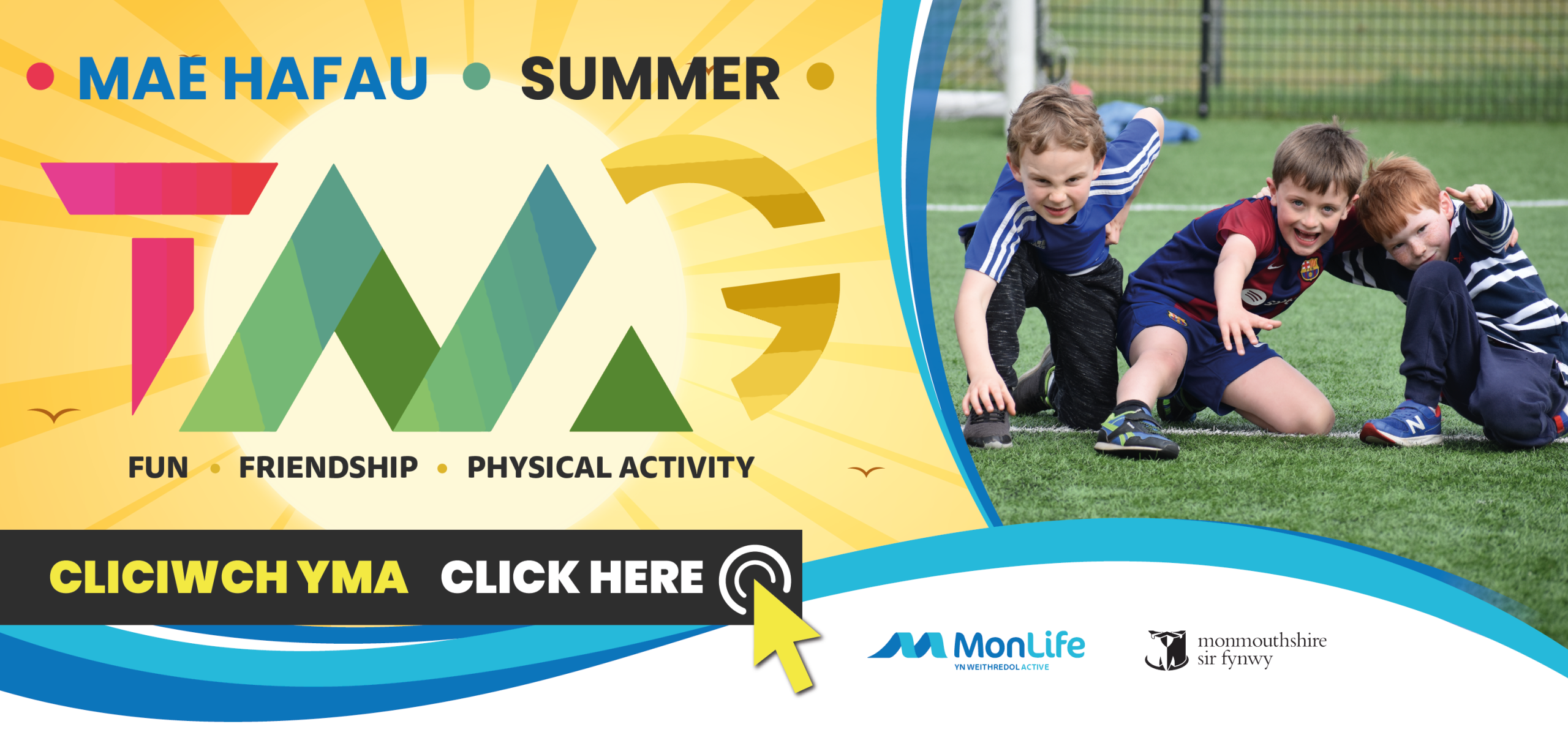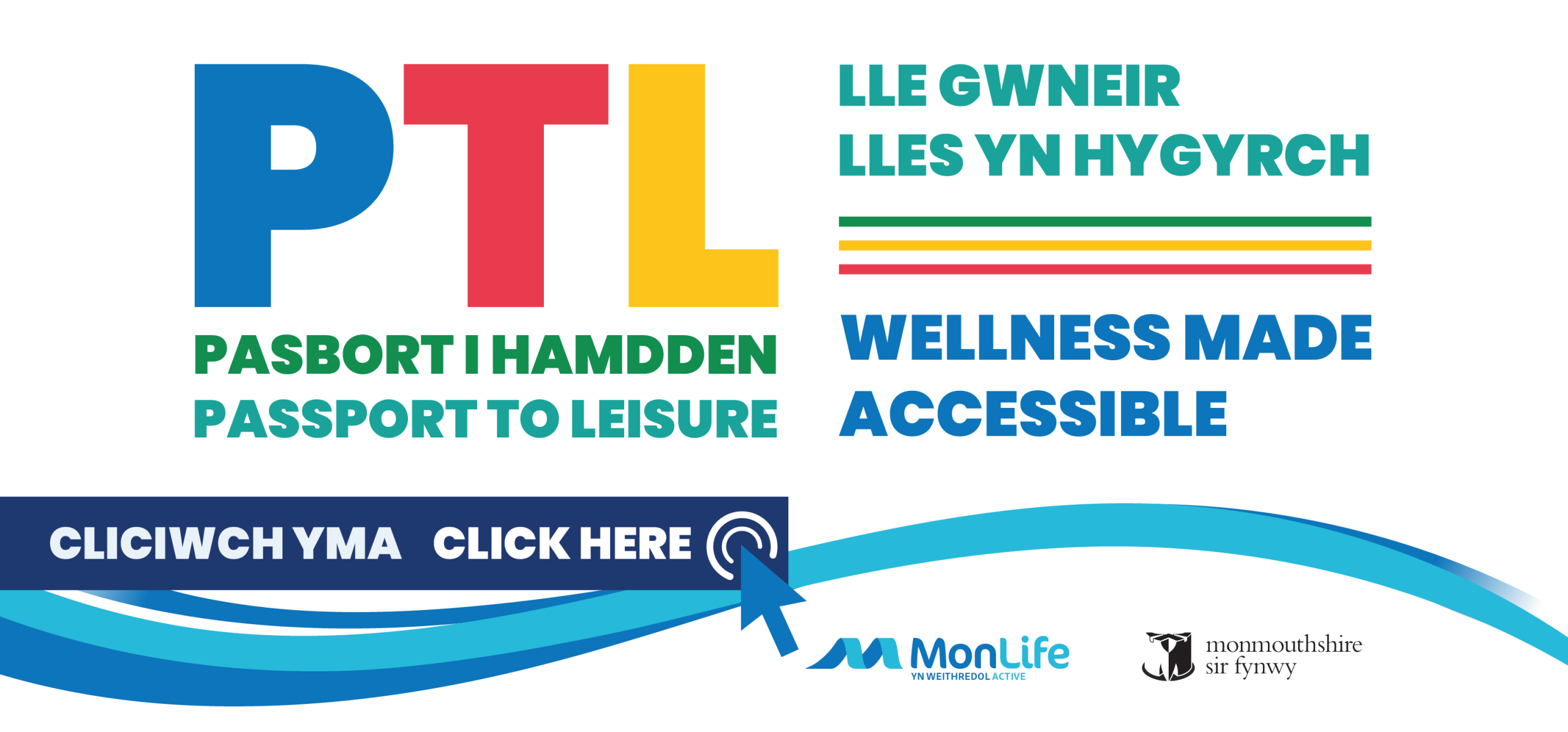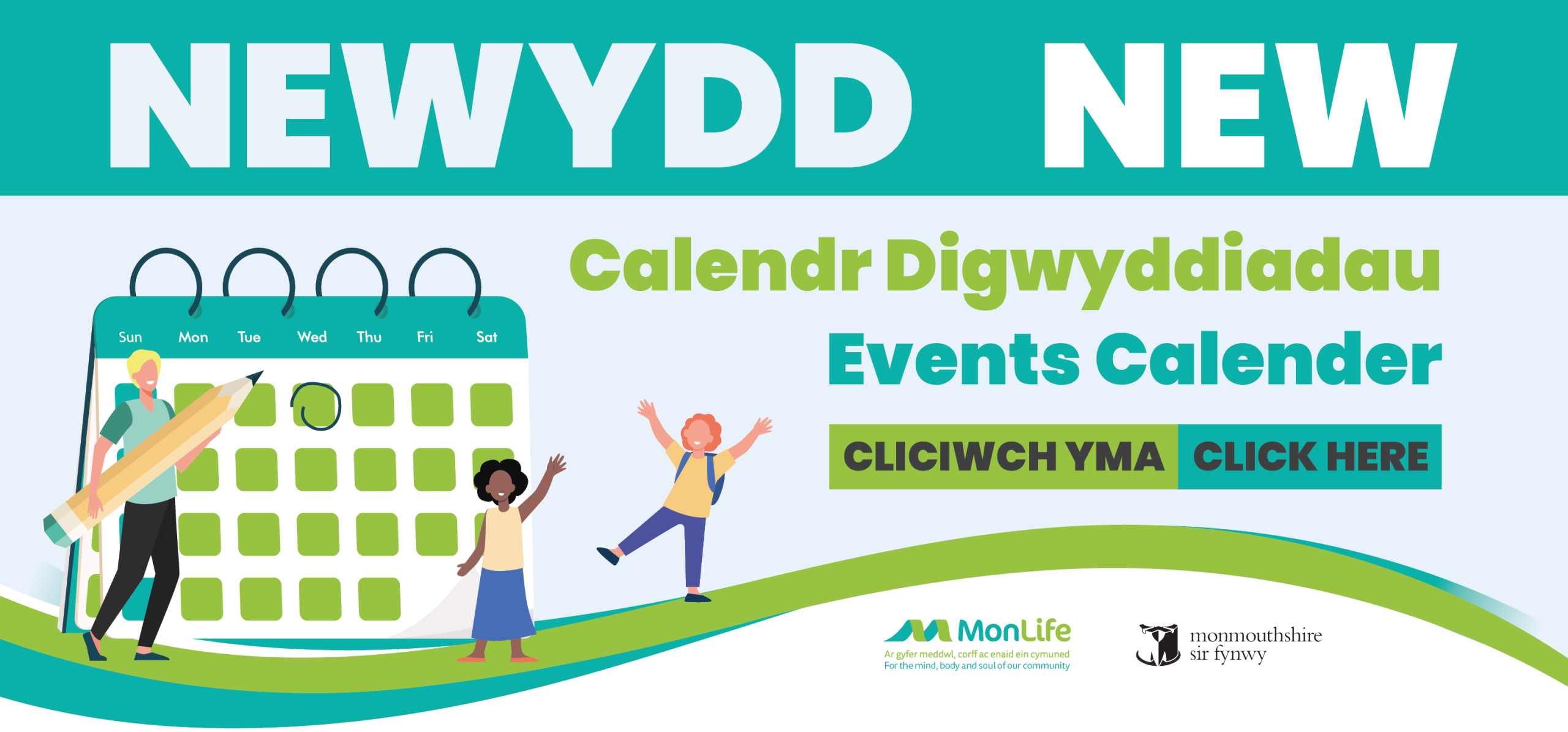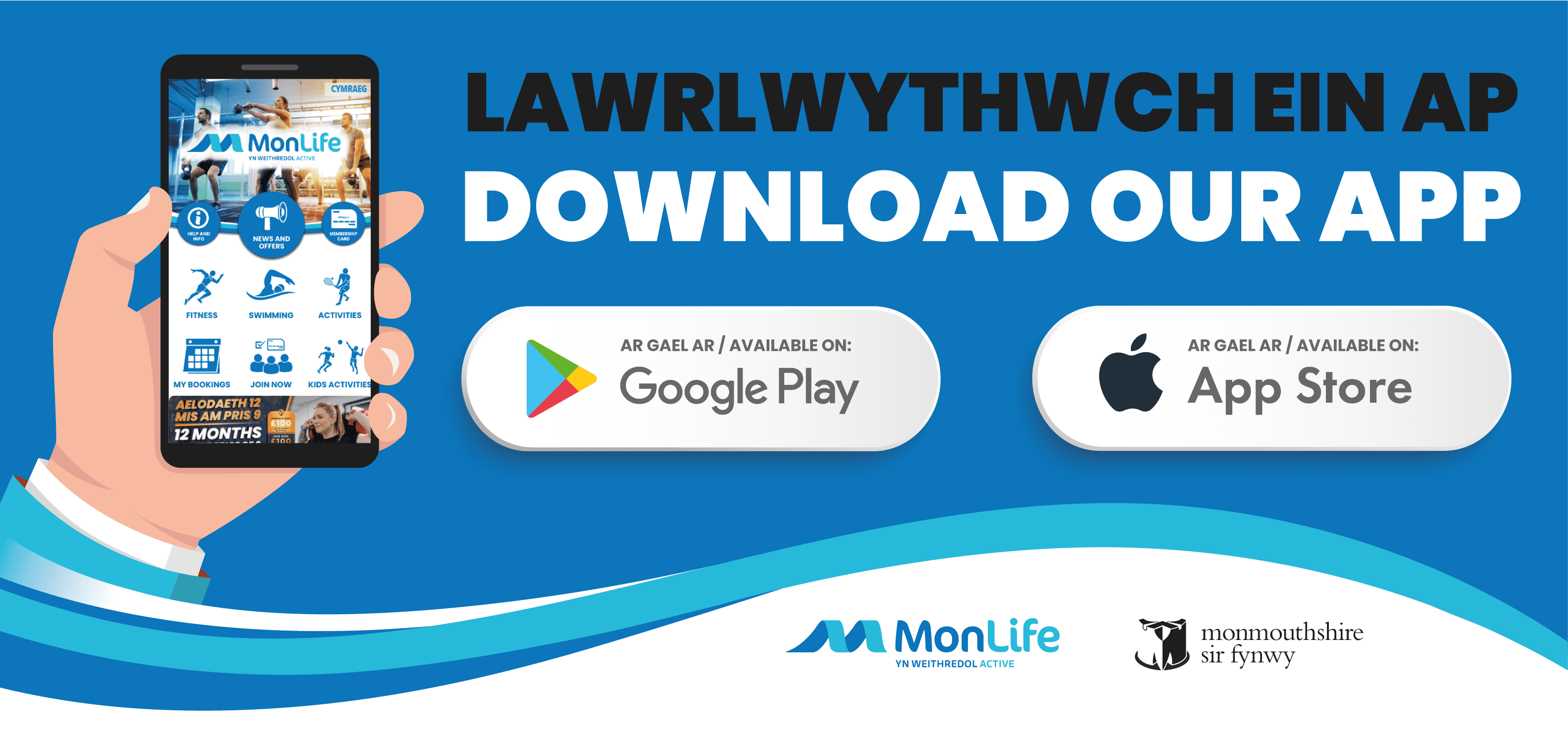National Exercise Referral Scheme
The National Exercise Referral Scheme (NERS) is funded by The Welsh Assembly Government working in partnership with Public Health Wales and Local Authorities, to provide exercise for anyone over 16 who are sedentary and at risk of or experiencing chronic conditions.

How can I be referred?
A referral can be obtained by a recognised NHS Health Professional (e.g. – GP; Nurse; Physiotherapist or Dietician). Once referred you will be booked in for a first assessment with a trained Exercise Referral Professional. They will complete a health check, explain what the scheme involves and answer any questions you may have.
What type of Exercise is offered on the Scheme?
- NERS Starter Class
- Virtual STARTER Class (via Zoom)
- Fit4Life / Easyline Classes
- Fitness Suite – including a tailored Programme and 1:1 Support with the Monlife Member Journey
- Tai Chi
- Pilates
- Yoga
- Aqua
- Aqua Running
- Swimming (at select times)
- Fit4life Table Tennis (Monmouth Leisure Centre)
- Fit4Life Dance (Chepstow Leisure Centre)
- Parkrun – Rogiet Country Park
Follow-up Support:
Your Exercise Referral Professional will contact you at 4 and 16 weeks to see how you are, review your health and fitness goals and discuss future physical activity options including the Fit4Life membership.
MonLife Active aims to get more people, more active, more often. For further information about the exercise referral scheme contact our Exercise Referral Coordinator on 01633 644800 or speak to your health professional who will be able to refer you on to the scheme.
What are the benefits of physical activity?
The physical benefits include:
- The heart and lungs become stronger and more efficient
- Muscular strength increases
- Joints become stronger
- The onset of osteoporosis can be delayed
- Body fat and excess weight may be reduced
- Relaxation and sleep might be improved
- Being better able to carry out the activities of daily living
- Feeling more alert and energetic
- Maintaining good posture
- Helping to normalise blood pressure
- Reduce risk of developing diabetes
- A reduced risk of blood clotting
- Helping to maintain independence, rather than becoming dependant
The psychological benefits include:
Some comments people have made
- “I feel less anxious and stressed”
- “My confidence and self-esteem are better”
- “Being more active helped me to give up smoking”
- “The activity sessions gave me time for myself”
- “My wife says I look a lot happier”
- “I took more responsibility for my own health”
The social benefits include:
Some comments people have made
- “It was a good opportunity to meet other people who had the same worries as I did”
- “The sessions made me get out of the house and gave me a new interest”
- “I made new friends and enjoyed the conversations we had”
- “I feel much fitter and can play with my grandchildren for longer now
This post is also available in: Welsh

